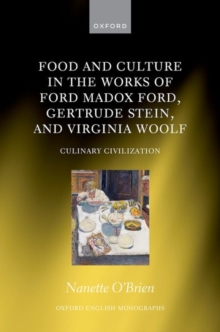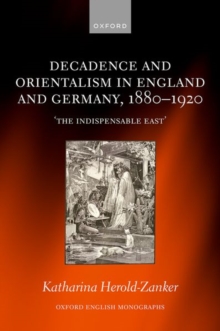
Modernist Parody : Imitation, Origination, and Experimentation in Early Twentieth-Century Literature EPUB
by Sarah Davison
Part of the Oxford English Monographs series
EPUB
Description
Parody often stands accused of producing derivative art deficient in taste and skill.
But in the hands of writers such as Ezra Pound, Wyndham Lewis, T.
S. Eliot, James Joyce, Ford Madox Ford, and Virginia Woolf, the mode engendered revolutionary self-reflexive, critical, and creative practices that were crucial to the development of truly modern art.
This book contends that the jauntiness, verve, and daring of high modernism is fundamentally parodic.
It argues thatparody is central to the whole modernist project, even to supposedly earnest movements such as Imagism, and not just to the extreme avant-garde antics of Dada.
As a literary technique, parody provided the means for modernists of many stripes to learn their craft, sharpen their historical sense, definethemselves as post-Victorians, and respond to sources of inspiration while composing.
It offered a ready method to laugh at folly, amuse friends, criticize opponents, spike enemies, and transgress conventions.
Being double-coded, parody proved a powerful weapon in the culture wars, enabling modernists to present and simultaneously challenge prevailing ideologies in all their historically determined complexity.
Its fundamentally dialogic and palimpsestual form exposed the limitations ofnaïve mimesis, insisting that literature is always language in unstable play, while simultaneously foregrounding the relational structures that underwrote the modernists' paradoxical claims to originality and modernity.
As a principle of continual genesis-and a spur to the production of yet more forcefullyexperimental art-parody therefore became the modernists' primary reflex as they negotiated their position in literary culture and made it new.
Information
-
Download - Immediately Available
- Format:EPUB
- Pages:288 pages
- Publisher:OUP Oxford
- Publication Date:28/06/2023
- Category:
- ISBN:9780192665911
Other Formats
- PDF from £55.25
Information
-
Download - Immediately Available
- Format:EPUB
- Pages:288 pages
- Publisher:OUP Oxford
- Publication Date:28/06/2023
- Category:
- ISBN:9780192665911










